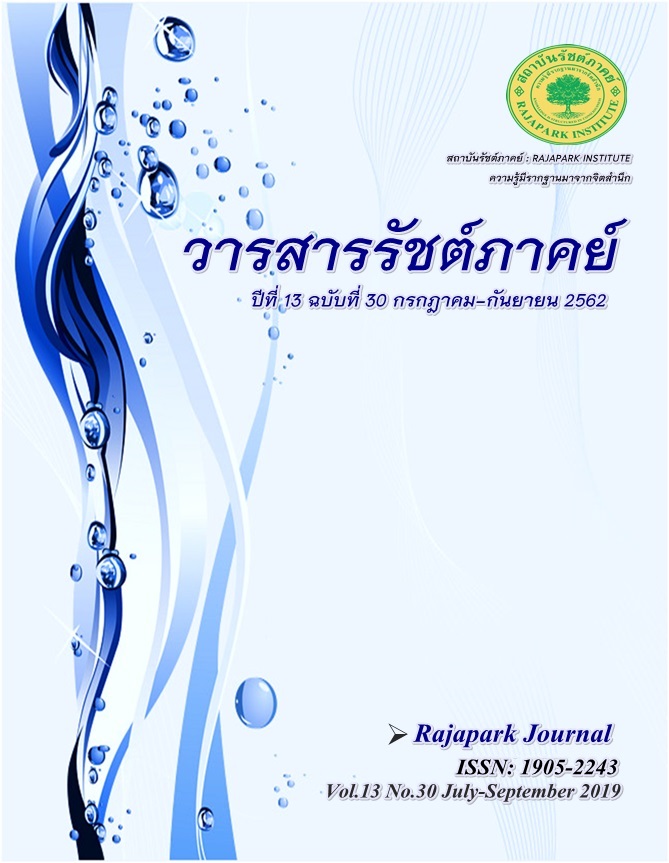Developing an Administrative model through the Quality Management of Learning and Teaching Based on the World-Class Standard School
Main Article Content
Abstract
This research was aimed preliminarily to identify predictive relationships between the status of school administration through the quality management of learning and teaching system, and the school quality based on the world class standard school management system and quality condition of the world class standard school. Results from the preliminarily study were to be provided as a basis for developing an administration model of the school quality. A mixed method of research was used for the study by which a sample of quantitative research comprised 10 quality awarded schools with 90 respondents. A set of questionnaires with reliability of 0.84 and validity of 0.84 distributed during June-July 2018 were then analyzed by frequency, percentage, mean, standard deviation, and step wise multiple regression analysis. While, 10 experts and connoisseurs were selected as sample of qualitative research whereby the content analysis was employed. The research found that, all aspects of administration: learning and teaching quality management system was predictable in quality of world class did requires participation and cooperation from all sectors including internal school factors, personnel, curricular, contents, and activities to the world class standard, adequate, appropriate, and modern of teaching media. School safety, and cleanliness. External factors included the government's education continuation to driven policy, the proper modification of work pattern, and focusing to all sectors participating in working process.
Article Details

This work is licensed under a Creative Commons Attribution-NonCommercial-NoDerivatives 4.0 International License.
Views and opinions appearing in the Journal it is the responsibility of the author of the article, and does not constitute the view and responsibility of the editorial team.
References
Anantanawee, P. (2010). Principles, concepts, and theories in educational administration. (3rd ed.). Chonburi: Montri Publishing.
Government Gazette, 2017, Volume 134, Episode 40 A, p. 14.
McKinsey & Company. (2007). Creating a World-Class Education System in Ohio. Washington, D.C.: Achieve.
Ministry of Education. (2004). Guidelines for the operation of the Buddhist way of life school. (4th ed.). Bangkok: Organization for the Transport of Goods and Supplies.
Mulkhum, O. (2009). Report of research analysis of the dream school project. Bangkok: Cooperative Printing Factory Agriculture of Thailand.
Munkong, J. (2011). The operation toward the implementation guidelines of world-class standard school. Master of Education, Silpakorn University.
Noksakul, R. (2012). The development of a causal relationship model of components affecting international standard school administration. Doctor of Education, Valaya Alongkorn Rajabhat University.
Office of the Education Council. (2017). National Education Plan 2017-2036. Bangkok: Prikwhan Graphic.
Panich, V. (2004). Learning Organization and Knowledge Management. Government Administration and Public Law batch 3 lecture document. King Prajadhipok’s Institute.
Pongpaiboon, P. (1999). What is the basic education management for 12 years academic. Bangkok: Gold Point Publisher.
Saksiri, N. (2010). An Analysis of Factors Relating to the Success of World-Class Standard School Policy Implementation. Silpakorn Educational Research Journal, 1(2), 221-231.
Upper Secondary Education Bureau. (2010). Guidelines for the implementation of international standard schools. Bangkok: Printing Agriculture Cooperatives of Thailand.
Wannasathien, D. (2002). Complete model for school administration based on basic education institutions. Doctor of Education thesis The field of educational administration Chulalongkorn University.


